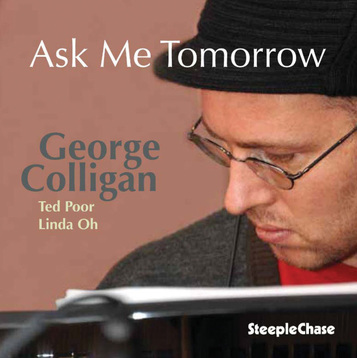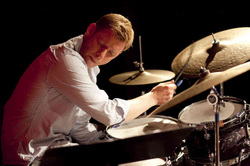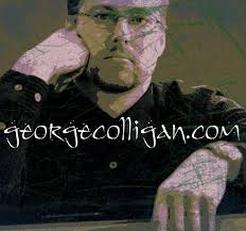
“Ask Me Tomorrow”, recorded in January, 2012, Colligan points out in his liner notes was supposed to be a demo. He wanted to document this particular trio, and rightly so, because he calls it “one of the most liberating gigs” that he has ever played. Half-way through the first track the listener can already understand why.
That first track—“Ask Me Tomorrow”—was the only track that was not a first take. The energy is high and the focus is razor sharp. It is all so clear from the outset.
Again, Colligan’s choice was correct. Poor plays the title track on the deep end of this blues and Oh plays off him and against him very well. Colligan himself, as always, is on top of the proceedings and, as composer, he is second to none. I even named him my “2013 Composer of the Year” for the Jazz Journalist Association poll for that year.
“Two Notes Four Chords” echoes of “One Note Samba” in a more haunting sense. It almost comes across as the jazz soundtrack of a mystery movie. Linda Oh offers a sweet solo that sets up Colligan’s close-to-the-end runs exceedingly well. The chord changes are brilliant.
The third track was written in Prague and thus the title of the song. Ted Poor’s quick roll kicks off “Prague” and the piano and bass share equally quick arpeggios to begin the piece.
| The piece is exciting and provides excellent launching pads for, first, Linda Oh’s solo followed by Poor. Colligan’s piano work is stellar. He sets up the closing groove in jaw-dropping strength. “Return to Copenhagen” was written in, of course, Copenhagen when Colligan was there in 1999. More like free style, Colligan tells in the liner notes that he wanted to test its sound with a trio. The trio obviously passed the test. Oh and Poor got the understanding of the piece quickly. It is lovely in the trio setting with each performer adapting and exploiting the range of the piece. |
The fascinating feature of “Insistent Linda” is that this was actually the sound check for the session. In that case, I wouldn’t mind sitting through a three-hour sound check with these three.
“Jesper’s Summer House” was written at the home of Jesper Bodilsen when Colligan and other musicians were staying there. In the midst of such quietude and tranquility, Colligan says, he knew he had to write in that setting.
It must be the nature of the surroundings. The finished result is reminiscent of the great ECM recordings of Eberhard Weber and others. Linda Oh plays into it flawlessly. It is an exceptional composition but, as have stated many times, Colligan as composer (or performer) never disappoints.
 Ted Poor
Ted Poor The focus between and among Colligan, Oh and Poor is laser fine. Oh cuts into a cool children’s chant for a couple of bars before returning to the full swing of Colligan and Poor. Colligan’s left-hand groove is especially in the pocket, giving a very memorable line along with Oh’s bass line. This is a favorite.
The album closes with “Jet Blue.” Always one to throw in a fun surprise—like the melodic—Colligan picks up the pocket trumpet on this free improvisational number. It is also a first-take, capturing the energy and skill of the whole trio. The ostinato is a fun feature of the piece. Colligan then fades it out with an exhausted-sounding horn.
As he did with his previous SteepleChase (SCCD 31752) recording, “The Facts” with Jaleel Shaw, Boris Kozlov and Donald Edwards, Colligan pulls in just the right musicians for just the music he intends. The recordings are done quickly and the demand is high for the musicians. None of them have let the music down.
This is Colligan’s recipe for success: fitting musicians, stunning compositions and no time to waste.
Released on June 24, 2014, “Ask Me Tomorrow” by George Colligan can be purchased here.
Have a look at George Colligan’s website at: http://www.georgecolligan.com
Visit Colligan’s fascinating blog at http://jazztruth.blogspot.com.


 RSS Feed
RSS Feed
